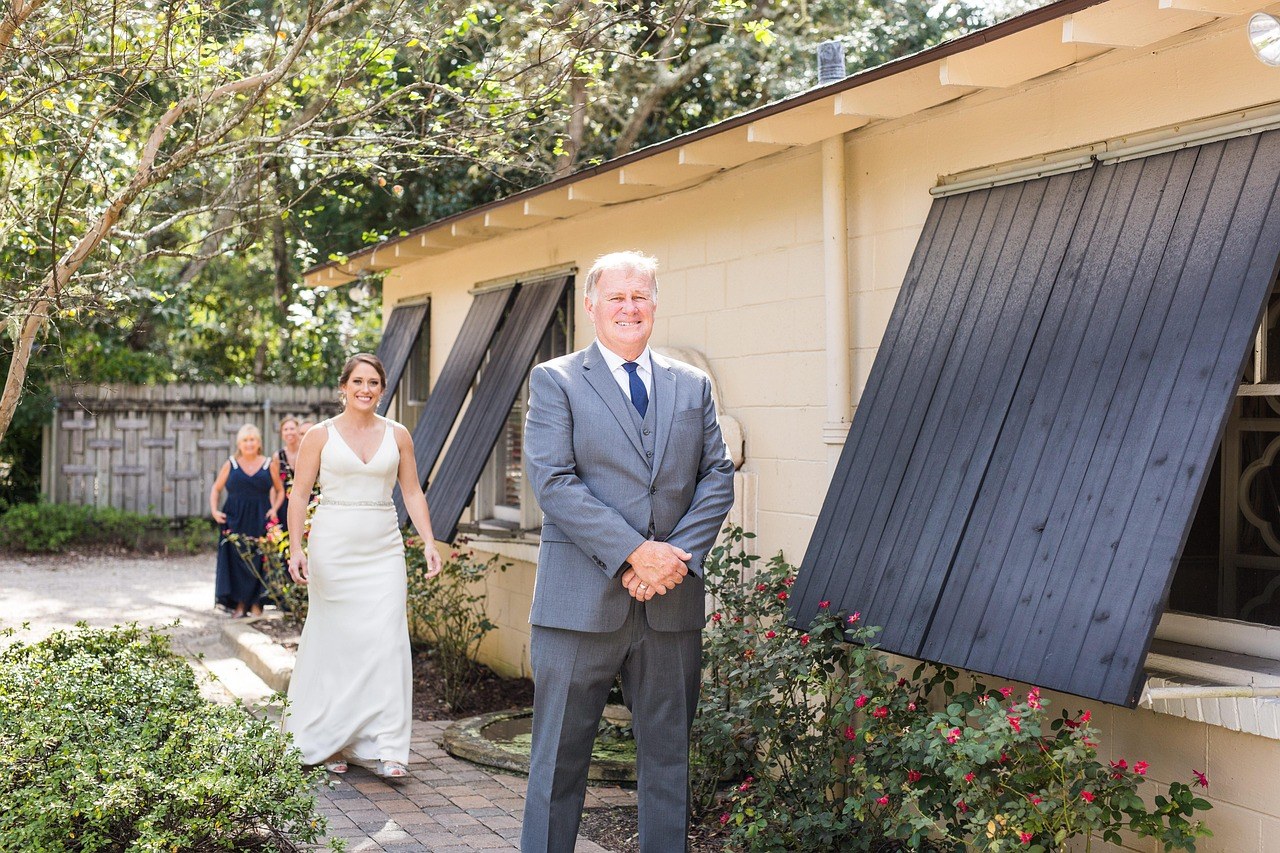Ending romance rarely arrives with a neat storyline – even when two people quietly agree that the relationship has run its course. A mutual breakup can feel strangely tender and bewildering at the same time, because it is both a decision and a loss. You may not be fighting, there may be no scandal to point to, and yet something essential has cooled. This piece explores why that happens, how to recognize the change without gaslighting yourself, and what to do in the days that follow so you can care for your heart with steadiness and dignity.
What a mutual breakup really means
People often imagine breakups as lopsided – one person leaves, the other clings. A mutual breakup tells a different story. It is the moment when two partners admit that the relationship they built no longer matches the life they want to lead, even if they still hold warmth for each other. It does not erase history or affection; it simply acknowledges that compatibility, chemistry, and daily realities have shifted in ways love alone can’t bridge.
In a mutual breakup, the reasons vary: arguments that never quite resolve, affection that feels more familial than romantic, priorities pulling in opposite directions, or values that were once aligned but now diverge. Sometimes the shift arrives slowly – routines become polite obligations, intimacy thins, and shared plans turn vague. Sometimes it’s a quiet realization after one honest conversation. However it appears, both people see the same truth and choose, together, to step away.

That choice can be unexpectedly dignifying. A mutual breakup allows both partners to keep their self-respect – no one is the villain, and no one has to manufacture a crisis to justify the ending. Still, relief and sadness often travel together. You can feel grateful for clarity and devastated by finality, all in the same afternoon.
Why it can feel heavier than expected
Even when you agree this is right, the grief lands with weight. Part of the pain is the collapse of an imagined future – the private film you played of holidays, milestones, and the steady rhythm of a shared life. Letting go of that projection can sting as much as letting go of the person. Another layer is ego: if you’re not the only one choosing the exit, you can’t hide behind the flattering illusion that you would have been chosen forever. A mutual breakup nudges you to face the humbling truth that the fit wasn’t there for either of you, and that can bruise pride even as it protects your integrity.
There is also the strange absence of a clear antagonist. Without a betrayal to rally against, the mind looks for fault – was it something you said, or didn’t say, or failed to become? This search rarely helps. Relationships are living systems; they evolve, and not every season is meant to become a lifetime. Accepting that reality is difficult, but it softens the impulse to assign blame.

When the ending sneaks up
Not every story ends with fireworks. Often, endings arrive like dusk – slowly, almost imperceptibly, until one evening you realize the light has changed. You talk less about “us” and more about schedules. Hugs become quick taps on the shoulder. Disagreements get shelved rather than solved. You’re kind to each other, yet the spark that once made kindness feel electric is faint. A mutual breakup can emerge from this gentle drift, and that quiet path can be more confusing than a dramatic rupture because nothing “terrible” happened – but something essential did.
How it often feels from the inside
Inside the experience, the emotional weather can be contradictory. You might feel oddly numb – able to get on with errands, yet inexplicably hollow in the spaces where the relationship once sat. You might sense relief in not having to pretend enthusiasm you no longer feel, then cry while making coffee because the cup you always poured for them sits untouched. In a mutual breakup, sadness lacks an easy outlet – there is no one to blame, no one to chase, just the quiet ache of loving someone you can’t build a future with.
It is common to wish, briefly, for a dramatic cause – an argument large enough to justify anger. But anger is not the only engine of closure. Sometimes the purest end is the calm recognition that the relationship, as it is, cannot meet what both of you now need.

The quiet courage behind choosing to part
Agreeing to let each other go is not indifference – it is care taking a different shape. A mutual breakup honors the other person’s right to be fully loved and your own right to feel alive in partnership. It’s a choice against half-measures. You are not discarding the past; you are refusing to confine the future. That is an act of maturity – and yes, it still hurts. You can admire the bravery it took to sit at the same table, speak honestly, and pick separate paths, even while you mourn what cannot continue.
Recognizing the shift before it’s said out loud
Sometimes you sense the change before you name it. These signs aren’t courtroom evidence – they are gentle indicators that invite reflection. Notice patterns over time rather than one-off moments; the goal is awareness, not panic.
- Conversations shrink from “What do we want?” to logistics about groceries, bills, or commutes. Big-picture dreaming feels forced or absent.
- Affection becomes transactional – goodnight kisses are courteous, not charged; cuddles are rare unless prompted.
- Conflicts end with postponement instead of resolution. You both avoid touchy topics because the energy to work through them is missing.
- Quality time looks like parallel play – shows watched in silence, meals eaten without eye contact – and you both call it “fine.”
- Excitement about shared milestones fades. Vacations get delayed; future plans sit as vague ideas no one drives forward.
- You care about each other’s wellbeing, yet jealousy, longing, and romantic urgency have cooled.
- When you imagine separate lives, you feel sad but not terrified – and part of you feels oddly calm.
If several of these resonate across weeks or months, the relationship may be shifting toward a mutual breakup. Recognizing that early gives you room for an honest talk – either to renovate the connection or to end it with respect.
Navigating the days after
After a mutual breakup, practical decisions come fast: who keeps the lease, how to return belongings, what to say to friends. The emotional care is slower – and essential. You don’t need a “tough love” boot camp; you need gentle structure that helps your nervous system recalibrate. Consider the following steps as invitations, not obligations.
- Give the story a name. Write a few sentences that describe what ended and why. Naming the truth – “We chose a mutual breakup because our goals diverged and romance faded” – quiets the urge to rewrite history every night before sleep.
- Set an initial boundary. Even if you plan to be friends, a pause helps. Thirty days without contact provides space to let the couple-identity settle. During that window, ask a trusted friend to be your sounding board so you’re not tempted to text your ex for comfort about the mutual breakup.
- Reclaim small rituals. Choose one daily habit that used to be shared – morning coffee, evening walk – and make it yours again. Tie it to a micro-celebration: a new mug, a different route, music you love. The point is not distraction; it’s rebuilding rhythm after a mutual breakup.
- Lean on your community. Relationships often narrow your social orbit without you noticing. Reach out – dinner with friends, a sibling call, a neighbor chat. Let people witness you. Being seen reduces the lonely echo a mutual breakup can leave behind.
- Let grief be ordinary. Tears in the supermarket aisle are not a sign you made the wrong choice – they are proof you’re human. Grief flows and ebbs. Give it a container: a nightly journal page, a long shower, a playlist you visit when the mutual breakup feels loud.
- Move your body. You don’t need a transformation montage – just motion. A slow jog, stretching on the living room floor, a bike ride. Physical movement helps metabolize the nervous energy that often follows a mutual breakup.
- Reconnect with curiosity. Pick up a book you abandoned, enroll in a class, learn a skill you shelved. Curiosity is not a rebound; it’s a way to meet yourself again after a mutual breakup.
- Return to dating when ready. There is no official timeline. If and when you feel open – not just lonely – begin meeting new people. Be honest about recent history: naming a mutual breakup as part of your story signals clarity rather than baggage.
Is any breakup easier?
People love rankings – which hurts less, the dramatic kind or the quiet kind? Truthfully, pain arrives in different costumes. Betrayal breaks trust, slow drifting breaks momentum, and a mutual breakup breaks the comforting illusion that love alone guarantees longevity. None of these are painless. What matters is the grounded belief that you chose what honored both lives. That belief doesn’t cancel grief, but it steadies the path forward.
Staying friends – if and when it makes sense
Because respect often survives, many former partners consider friendship. This can be beautiful, especially when practical cooperation is needed, but it works best with deliberate care. Give the romantic bond time to cool. Set expectations about communication, new partners, and boundaries around physical affection. Friendship should not be a consolation prize or a way to delay goodbye; it should be a new relationship formed by two people who have fully mourned the mutual breakup and genuinely want a platonic connection.
A grounded example of the process
Imagine two partners who once synchronized easily. Over time, work schedules stretched, affection tilted toward routine, and long-term plans became a conversation both postponed. Week by week, they noticed kindness remained while spark slipped. One evening, they sat down, spoke plainly about the drift, and chose a mutual breakup. The next day, one moved out. There were no shouting matches, no scandal – just logistics, quiet tears, and a stack of cardboard boxes. In the weeks that followed, each rebuilt small rituals, leaned on friends, and resisted the urge to assign fault. Months later, both stepped into new relationships with clearer eyes, carrying gratitude rather than bitterness. The story is unglamorous – and deeply human.
How to talk about it with yourself and others
Language matters. When you tell the story, avoid apologizing for the decision or diminishing it with jokes. Try phrases like, “We cared about each other and chose a mutual breakup because our relationship wasn’t meeting us anymore.” This framing respects what you had without promising what you couldn’t give. With friends and family, be consistent – oversharing can invite commentary you don’t need. You owe no one a villain; you owe yourself clarity.
What you are – and aren’t – responsible for
You are responsible for honesty, kindness, and follow-through: returning belongings, closing shared accounts, honoring boundaries. You are not responsible for manufacturing drama to justify the ending, nor for managing everyone’s opinions. A mutual breakup already contains its own integrity – two adults told the truth. That truth does not require spectacle to be valid.
Letting love take a different shape
Sometimes the most loving act is release. Love can be fierce and tender – and also finite in a romantic form. Choosing separate paths does not cheapen what you shared; it rescues it from resentment. If you notice moments of serenity amid the sadness, trust them. They are evidence that your decision aligns with reality. In time, the phrase mutual breakup will feel less like a wound and more like a chapter title – not the end of your capacity to love, but a turning point toward a life that fits.
As you move forward, expect memory to be generous. It will hand you highlight reels and quiet scenes – rain on windows, a laugh in the kitchen, the way their hand found yours in crowded rooms. Let those memories be what they are: proof that connection happened. You do not have to hate what is over to welcome what is next. And if grief arrives in waves – days when you miss the routine, moments when you second-guess the choice – remember the simple, steady truth at the center of a mutual breakup: two kind people chose honesty over inertia. That is a loss, and also a gift.